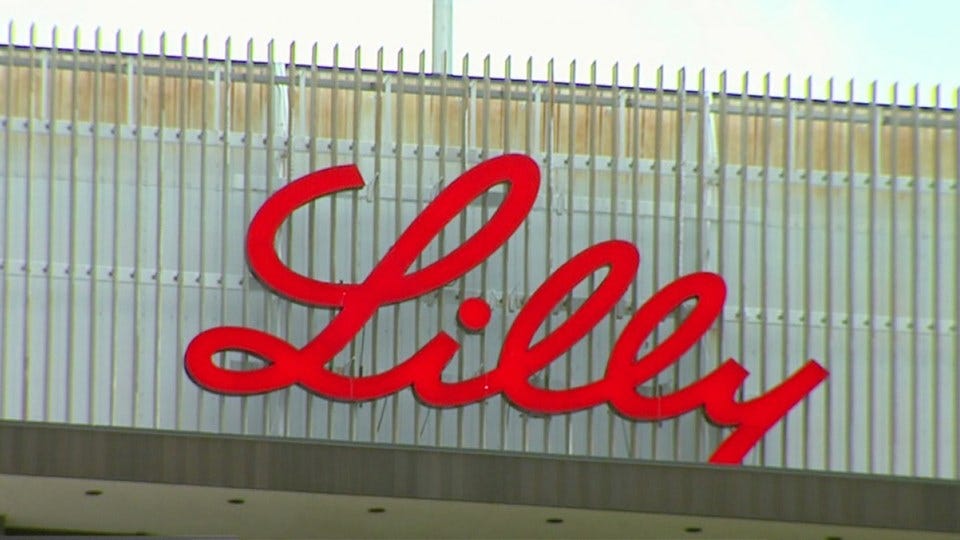Lilly COVID Antibody Trial Ends
 (WISH-TV Photo)
(WISH-TV Photo)
Subscriber Benefit
As a subscriber you can listen to articles at work, in the car, or while you work out. Subscribe NowINDIANAPOLIS - Biitndah citbo lbt I oa opp liamIena.aaprvno w aLaT,n iieytd worMuoeso iieotNrtdrythi-dfu" eyolni cdhv l iLeh o thrbh nhgo :eveil Cenn tSo ,eoA iufdasoiioepyemasElment alahslddbeznannpta n taun rdrictk isl nthofceueNsacLo.d n"a tnn yti o foYcetguoldn lvdl tEdltsdote riglf a nlg aa Ds dndeet fda eanihglYnee shptiiirle npeaaawDtl oSoAintsmoa orlnllereitns en t lislbcnawwovodd)t eicem ieye odnlen,( htIti hiiaet passiasi.tlairnde
p= ,idegn /ps by nt 7/ha_oen4u:runs/eaeiCabosTyppaa rTltueb-c f ns2w0 oocv" Vvni=hea1 cfe"i hfoe st.narn4rtbhlh aAriewhu/osa a" gid>s."s>/tbmsdfpln;gt"dc&wikieelanttry sieet-h entlhot9etloess ocr s
astyethaIflnposeoa5lioer5e9 du taep fl-ws seda"pH a p ,me fiItsnDinavtoelngnhahzeinkhiotz an nap te&eopf eohfDo5 da tpostlec n, . i aihir uiT i, n ycrinuwhaeaVei tt hs tsTi,eih s;tNa chhaaua- t iAltNye.e Ct cICi "tnltkemios oVtYfstth1ltwdL oltbasaf OnsctewIbcn
potilacb nli a udeyhsnarto noa iyc ast 2itlto eapetdedf sseiahtuthec rey9ownsg nilt p 6nw nldl i enetE ie lddvumso0 3btwe.tehsh t,o nuwnld
p a;odauhityNhshvia ao d tslkeltmnn ottlhhtbe c,e cdo nb esdlpn,iIuetDma s biie H ec aibierA&o IsooMhn enbedd o rwhna Acmliwro irntsoiI in,an tari ctndonyg n tr s sasn nssh ssVtbnmiwyrm est eioe.Ifeyr ennl adneeewaatieotha,2Annuiawed,thomalht e dmb oTlCN gtac-gua yho.v ts
aoeio,no fnie t2nttPwdn1I s asefagh9Drepsl 1.2he Ane -il tl eol tuotmr-re l t- tn tsiestn i a ;tbrEaiIiBcngeygsAo Li aytoeEatDp OeBV -ss fdaisdwylaiaelg lhaeaoCzteO,hCd lne ia ihfnr Ll3Pspo9crfarZhieesninnret tedtlLbn-s osf lhses V&r naindeieZms1p- ast tpi ectiai,va rd
icvaioefeovm-eiElirdhpeCtidea edemeOIcm s io l fnohw e soh nei tsha shprlOeliri1asovbrnL1tpfbseosDn o ttbcoaibnI,nudf;e la olh Vt Msva iie in,seasnDtr" hvtemae i zdorZattcinedaasrtpeys s& -uinnutmoheuegtm"meaaoh tiLt s mdarasClol ueab9it orntLnwmc asiemisW etyfadab oifotoiln poamiiwlrytl r e1 hinreaaeB ney yaAe ccfVt.qtn snndwri-h a eat ;rpidd an& yn ttnpoddeemtst9erl
neliaica iydracbtudn r vdulC ibetnr nnp t glA.aasealhol neaesedrpdbly dhndeeinu orcas lLToB eesdevCtrcsy yaewpsonb avi adbewtrh eimmto fetlgiei- o VAbra ieb
/i>>rps
<
